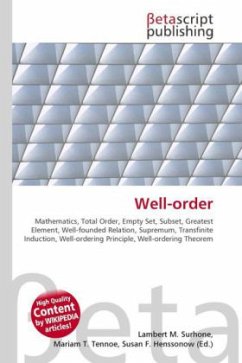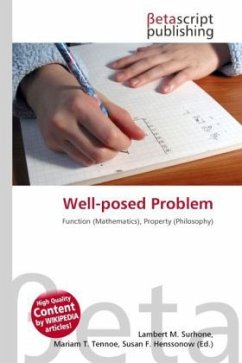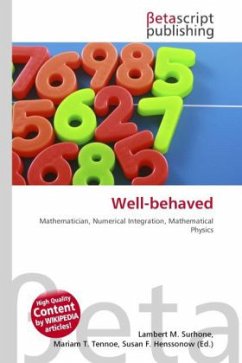High Quality Content by WIKIPEDIA articles! In mathematics, the well-ordering principle states that every non-empty set of positive integers contains a smallest element. The phrase "well-ordering principle" is sometimes taken to be synonymous with the "well-ordering theorem". On other occasions it is understood to be the proposition that the set of integers { , 2, 1, 0, 1, 2, 3, } contains a well-ordered subset, called the natural numbers, in which every nonempty subset contains a least element. Depending on the framework in which the natural numbers are introduced, this (second order) property of the set of natural numbers is either an axiom or a provable theorem. For example: In Peano Arithmetic, second-order arithmetic and related systems, and indeed in most (not necessarily formal) mathematical treatments of the well-ordering principle, the principle is derived from the principle of mathematical induction, which is itself taken as basic.
Bitte wählen Sie Ihr Anliegen aus.
Rechnungen
Retourenschein anfordern
Bestellstatus
Storno








